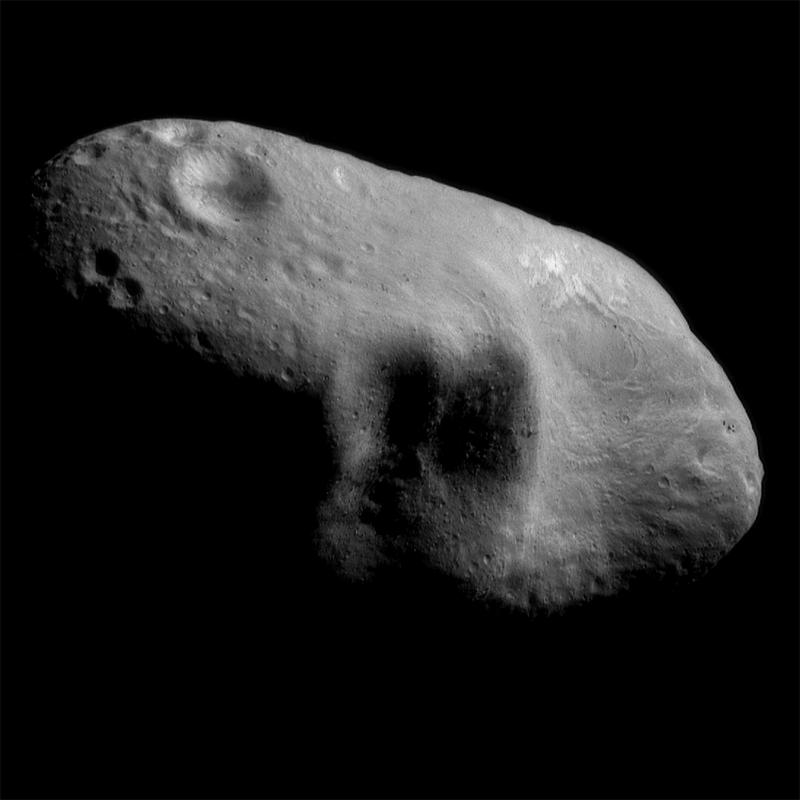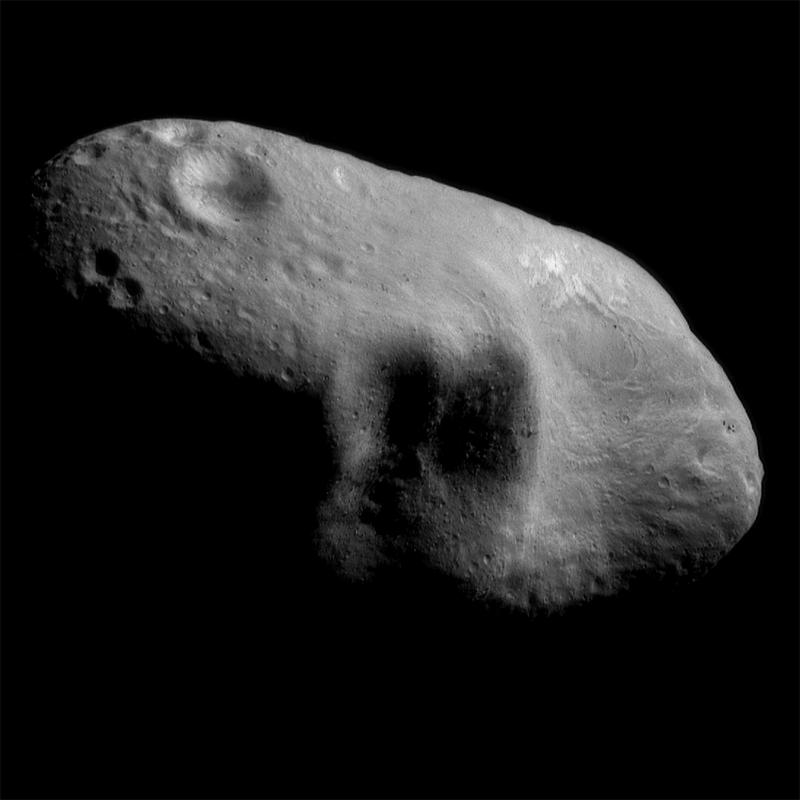Glimpses into Eros’ Shadows

| Credit | NASA/JPL/JHUAPL |
|---|---|
| PIA Number | PIA02487 |
| Language |
|
This image mosaic, showing Eros' saddle and a shadowed feature to its left, was taken on March 3, 2000 from a distance of 204 kilometers (127 miles). In this picture features as small as 20 meters (65 feet) across are visible. This is the best view to date of this area. The sun is coming from the northeast illuminating a shadowed feature that consists of three large craters situated adjacent to each other. The two largest are each about 4-5 km (2-3 miles) across. Because the sun is very low with respect to these craters, even small topographic features cast long shadows, making them easier to see. As a result, several boulders on the crater walls can be distinguished, ranging from about 50 to 100 meters in diameter. The saddle (on the right of the mosaic) is relatively smooth with few impact craters, and has several grooves running across it. At the top of the saddle are several curved grooves that are brighter than the surrounding surface. Unusual brightness patterns are also visible in the crater at the top left of the mosaic. The walls of the crater appear to be more reflective and its floor less reflective than nearby parts of the asteroid.
Built and managed by The Johns Hopkins University Applied Physics Laboratory, Laurel, Maryland, NEAR was the first spacecraft launched in NASA's Discovery Program of low-cost, small-scale planetary missions. See the NEAR web page at http://near.jhuapl.edu/ for more details.

